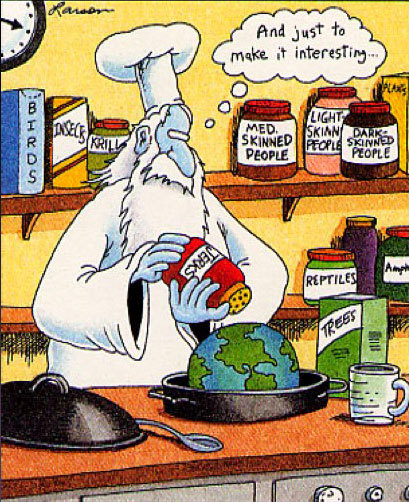
Posted on 06/24/2013 5:11:08 AM PDT by Kaslin

Don’t give up on Hollywood. I just had the exciting opportunity to pre-screen Gettysburg director Ron Maxwell’s third Civil War movie premiering Friday, June 28. If you see just one movie this summer, make it Copperhead.
Copperhead is worth seeing because it re-tells American history with an intimate, engaging and non-textbook approach. Away from the mighty battlefields and memorable generals we finally get to experience behind-the-scenes struggles of the Civil War through a few friends, lovers, neighbors and family members trying to speak their minds while practicing what they preach.
Copperhead is based on a novel by Harold Frederic, who lived through the Civil War as a boy. The lead character, Abner Beech, opens the movie by saying: “They called us people in the North that didn’t want the war Copperheads.” When Abner’s hired boy puzzles over the hatred and violence exerted by one-time friends and neighbors, Abner explains: “War is a fever son… puts you out of your right mind; you do things you wouldn’t do when you’re sick…”
President Obama is on the verge of bypassing Congress and hauling the United States into a war in Syria much like his war in Libya, which he called “kinetic military action” in order to sneak past the Constitution. When it comes to war, Obama is hardly transparent with the American people.
Obama feigns that he is only now contemplating arming sketchy Syrian rebels. But the truth is that he and former Secretary of State Hillary Clinton have been secretly arming Syrian rebels with links to terrorism for a very long time; by all major accounts, Obama’s gun-running program played a key role in the deaths of four Americans in Benghazi, Libya on September, 11, 2012.
War, especially civil war, comes at a price and it is far easier to get into war than out of war. Copperhead takes us into the homes of a few families who started out as neighbors with different beliefs. Instead of free speech and open debate, violence became the mode of making one’s points clear. In a particularly emotional scene, two grown men and neighbors-turned-enemies cling to each other in open despair, tears filling their eyes, as they realize they may have lost their most precious possessions in their rage.
As our own young men and women come home without their limbs after bravely fighting Obama’s perpetual wars in the Middle East, Copperhead reminds us that young boys also lost their eyes and limbs fighting in the Civil War and that African Americans were: “bought and sold and whipped just ‘cause the color of their skin.” The movie was humbling to watch; it forces one to contemplate what it means, and how hard it is, to truly “love your neighbor as yourself.” As one teenage boy tells his abolitionist father pushing him to fight: “I didn’t know the ‘Lord’s work’ was killing. … There’s too many folks carryin’ swords; not enough pulling plows.”
Maxwell describes his vision behind Copperhead and how it is different from his previous Civil War films: “I wanted to explore something more intimate. My previous pictures focused on officers and leaders, but, in reality, the war was fought by teenage boys, most from small towns whose families ended up devastated by the war even if no battles were fought nearby. … Not everybody who hated slavery or loved the U.S. Constitution was willing to send their children off to die or be maimed in a bloody battle against fellow Americans. That fascinating reality is the force driving Copperhead.”
Copperhead also drives home the importance of free speech as a way to resolve conflict before jumping into outright war. “If there’s a political point to the film, it’s a defense of dissent,” says screenwriter Bill Kauffman.
Thomas J. DiLorenzo, Professor of Economics at Loyola College in Maryland recently wrote a book called Lincoln Unmasked where he explains history in a way that echoes the message in Copperhead. DiLorenzo explores how, after the Civil War, Americans forgot that the founders intended our union to remain strong and voluntary: “The Jeffersonian, states' rights tradition, for example, has been whitewashed from the history books thanks to the efforts of several generations of gatekeepers and court historians. …[states’ rights] was an important Northern as well as a Southern political doctrine prior to 1865.”
There are valuable lessons in life and history folded into this fascinating new film coming out of Hollywood. You can request the movie in a theatre near you by visiting this site.
You are aware that it is a movie based on a work of fiction aren’t you?

You make the good point about the definition of Copperhead.
It was a general term, like “progressive” that varied from instance to instance as to what it meant. Liek many terms some took it as a badge of honor.
Some Copperheads supported the Union, but some were outright anti-war.
Vallandigham is a good focus character to examine the whole issue.
The author of this tripe, published in townhall.com, of all places, is singularly ignorant of history for lauding this “apologetic to traitors.”
Imagine in 100 years, if there was a movie praising Jane Fonda and John Kerry as “heroes”, because of their deep, religious objections to the Vietnam War? Repulsive would be the term that come to mind. And yet, even today there are many who insist that the Weathermen and Black Panthers were “just as patriotic” as soldiers who fought in that war.
B.S.!
The same applies, even more so, with Clement L. Vallandigham, and his merry band of Copperhead traitors.
http://en.wikipedia.org/wiki/Clement_L._Vallandigham
It is a very apropos label, because were they just in opposition to the Civil War they would be called “Butternuts”, not Copperheads. The Copperheads comprised the more extreme wing of the “Peace Democrats” and were called “Butternuts” because of the color of the Confederate uniforms.
So they were *not* just Hippies holding protest signs, but more like Weathermen who robbed banks and assassinated policemen, while calling for the overthrow of the government. Yeah, “patriotic”.
Copperheads damaged the Union war effort by fighting the draft, encouraging desertion, and forming conspiracies. And yes, many favored both slavery and a willingness to divide the Union into two countries. They talked of helping Confederate prisoners of war seize their camps and escape. They sometimes met with Confederate agents and took money. The Confederacy encouraged their activities whenever possible.
Copperheadism was a major issue in the 1864 presidential election; its strength increased when Union armies were doing poorly, and decreased when they won great victories. After the fall of Atlanta in September 1864, military success seemed assured, and Copperheadism collapsed.
On the political side, people like General George B. McClellan, leader of the Union Army, who wanted Lincoln to fail so he could win against him in the president elections, as a Democrat, so he just refused to fight the Confederates until Lincoln relived him of his command.
The Copperheads had numerous important newspapers, but the editors never formed an alliance. In Chicago, the Chicago Times was Lincoln’s most vituperative enemy. The New York Journal of Commerce, originally abolitionist, was sold to owners who became Copperheads, giving them an important voice in the largest city. They joyfully supported the New York draft riots.
The Metropolitan Record was the official Catholic paper in New York City. Reflecting Irish opinion, it supported the war until 1863 before becoming a Copperhead organ; the editor was then arrested for draft resistance, again supporting the draft riots.
The editor of Wisconsin’s La Crosse Democrat called Lincoln “Fungus from the corrupt womb of bigotry and fanaticism” and a “worse tyrant and more inhuman butcher than has existed since the days of Nero.... The man who votes for Lincoln now is a traitor and murderer.... And if he is elected to misgovern for another four years, we trust some bold hand will pierce his heart with dagger point for the public good.”
That is, calling for the assassination of the president.
Probably the largest Copperhead group was the Knights of the Golden Circle; formed in Ohio in the 1850s, it became politicized in 1861. It reorganized as the Order of American Knights in 1863, and again, early in 1864, as the Order of the Sons of Liberty, with Vallandigham as its commander. One leader, Harrison H. Dodd, advocated violent overthrow of the governments of Indiana, Illinois, Kentucky, and Missouri in 1864.
The Copperheads also caused the Charleston riot:
http://en.wikipedia.org/wiki/Charleston_Riot#Copperheads
“The Copperheads of Coles County had been different from other dissenting groups from around the country, in that they chose to use physical violence as their method of dissent. By killing Union soldiers, who had become the emblem of Federal government control, the Copperheads were attempting to project their anger toward the government. The draft, a strong central government, and racism fueled the Copperheads support within the county.”
Yeah, Jane Fonda and John Kerry were “just as patriotic”, by supporting the Vietnamese enemies and calling American soldiers war criminals.
To Hell with this movie.
Copperhead was shot on location right in my back yard, so to speak (Kings Landing, N.B.). One of my rellies was an extra in the film.
Gary was so close with that one. ;-)
already up to 8: 55,000,000 just from CHOICE alone!
Actually. “The Copperhead. New York 1893; Marsena. London 1896; The Damnation of Theron Ware. Chicago 1996. ... Harold Frederic’s Stories of York State.”
Vallandigham was one of those Copperheads who worked to undermine the war effort. He was a strange duck.
Yes, Christian faith...you might do well to examine the picture more closely before dismissing the proposition. It so happens that, due to the efforts of Lee and Jackson, there was a revival among the troops under their command, who came to a genuine faith on the battlefield that they didn't have before the war.
A lot of folks in the South took the loss of Jackson at Chancellorsville and the loss of the battle of Gettysburg as signs that God's blessing was being withdrawn from their cause.
As for worshipping their earthly institutions, I wouldn't recommend judging them too quickly for that shortcoming; they are not the only ones who could be so charged, and they did eventually accept the final outcome.
They didn’t win. That is a matter of faith in particular. Examining the picture more closely does not entail listening to propaganda but examining this bare fact.
Disclaimer: Opinions posted on Free Republic are those of the individual posters and do not necessarily represent the opinion of Free Republic or its management. All materials posted herein are protected by copyright law and the exemption for fair use of copyrighted works.